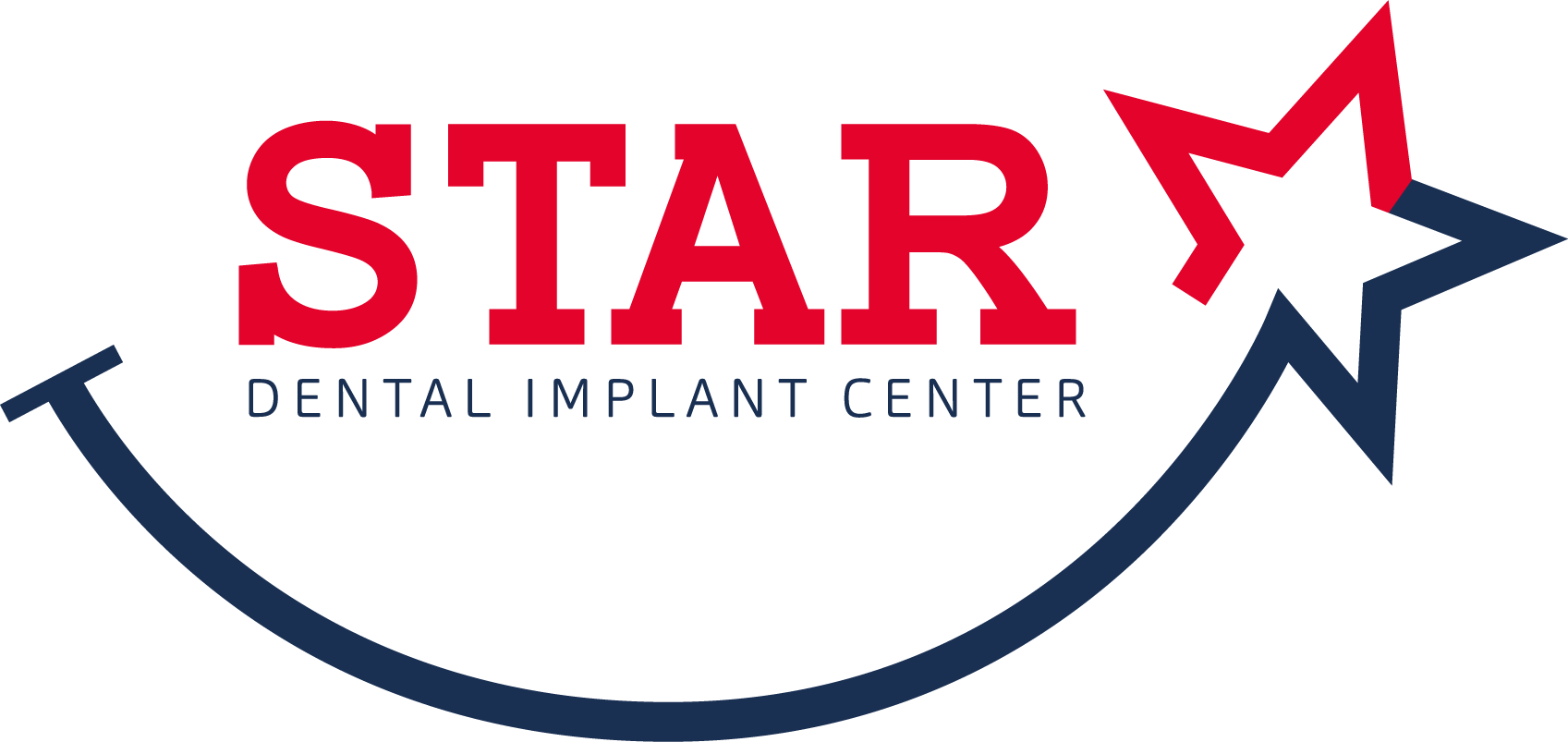Patient Resources
Below you will find Important information regarding your experience as a patient at STAR Dental, options for funding treatment, our STAR Dental Guarantee and preop-and post-op instructions as well as a list of Frequently Asked Questions to assist you.

Patient Experience
Managing Dental Anxiety and Pain
Sedation Dentistry
Many of our patients have anxiety associated with dental care. Whether they had a bad experience in the past, or are fearful of needles, the noises, or sounds associated with dentistry we know it can be stressful for patients. Our goal at STAR Dental is to minimize that high level of anxiety for those who struggle to sit in the dental chair. We numb the gum tissue prior to injecting the local anesthesia. We also offer oral sedatives and IV sedation (conscious or twilight sedation) if appropriate.
Pain Management
Pain management is routinely required for many dental procedures. STAR Dental promises to provide respectful care and appropriate management of dental pain. Most frequently, dental pain management is for brief but acute situations which requires short-term prescriptions for pain medication. For many treatments, ibuprofen, acetaminophen, or a combination of the two will alleviate dental pain. Small doses of prescription medications followed by over-the-counter medications (OTCs) will provide appropriate pain relief.
- We may ask if patients are receiving medication from other doctors.
- We may also consult with prescription drug monitoring programs.
- We will not prescribe over the phone, especially with patients we have not met.
- Our doctors will not prescribe opioids
- Our dental team will discourage the use of non-combination opioids.
- For those patients with a pain management contract with another provider, their pain management will be managed by and/or coordinated with the patient’s primary care provider.
If you do require or currently take special medication, please bring this with you. Inform your current care provider that you will be traveling, and fill any prescriptions prior to your travel to Costa Rica. We are unable to refill prescriptions for you.
Funding Treatment
We know that funding can be the one thing holding someone back from getting the treatment they need and desire to improve their life. For this reason, we have partnered with two U.S. lenders to help more patients get the treatment they need, and a monthly payment they can afford.
If you will be using a lender, it is important for patients to apply for credit and ensure that they have been approved before scheduling any travel and treatment. For more information on how to fund your dental treatment, please contact our patient coordinator.

STAR Dental Guarantee
STAR Dental Implant Center only uses premium titanium dental implants and high quality materials which allows us to provide you with a lifetime warranty on all of our dental implants and a limited guarantee on our crowns on natural teeth, implant crowns,bridges on natural teeth, and implant bridges and, All-on-X bridges. If the osseointegration has failed, STAR Dental Implant Center will replace the dental implant without any additional fees to the patient. However, the lifetime guarantee will not apply if the failure is a result of trauma, an accident, or damage caused by the patient or a third party. Additionally, if the patient has a condition that would negatively affect successful implant integration, such as alcoholism, uncontrolled diabetes, or drug dependency, the guarantee will not be honored. The warranty will also not apply if the implant has been used in conjunction with a clinical component or instrument obtained from another dental provider besides STAR Dental Implant Center.
Pre-Operative Recommendations and Requirements
Dental Implants and smoking
The success of dental implants is reduced significantly in people who smoke and vape.
Quitting smoking/vaping before the surgery increases the chance of success, the healing process will be faster, and the risk of complications will be reduced. We recommended quitting for several reasons.
- Smoking/vaping can decrease blood flow to the implant site which can delay the healing process and increase the risk of implant failure. This means that the healing process may take longer, and the implant may not fuse properly with the bone, which increases the risk of implant failure.
- Smoking/vaping can cause bone loss in the jaw, which can make it more difficult for the implant to fuse properly with the bone.
- Smoking/vaping increases the risk of infection, which can further delay healing and increase the risk of implant failure.
- Smoking/vaping also increases the risk of complications such as dry socket, which is a painful condition that can occur after the implant surgery.
We recognize that quitting smoking/vaping can be a difficult process, but there are several strategies that can help:
Nicotine replacement therapy (NRT)
Nicotine replacement therapy (NRT) products such as gum, lozenges, patches, and inhalers can help reduce withdrawal symptoms and cravings.
Medications
Medications such as bupropion and varenicline can help reduce cravings and withdrawal symptoms.
Counseling
Individual or group counseling can provide support and help you develop strategies for coping with cravings and triggers.
Support groups
Joining a support group can provide a sense of community and accountability.
Exercise and healthy diet
Regular physical activity and eating a healthy diet can help reduce cravings and improve overall health.
Avoiding triggers
Identifying and avoiding situations that trigger cravings, such as certain people or places, can help make it easier to quit.
Once you make the decision to quit smoking, know there are several healthcare professionals who can help you to quit:
- Primary care physician: Your primary care physician can provide you with information about different quitting methods, prescribe medications, and refer you to other resources.
- Nicotine Anonymous: Nicotine Anonymous is a 12-step program modeled after Alcoholics Anonymous. It provides support and accountability for people trying to quit smoking.
- Quitline: Many states have quitlines, which are free telephone counseling services for people trying to quit smoking.
- Counselors: Behavioral health counselors, psychologists, or social workers can provide individual or group counseling to help you quit smoking.
- Pharmacist: A pharmacist can provide information and guidance on Nicotine replacement therapy (NRT) products such as gum, lozenges, patches, inhalers, and other smoking cessation medications.
It is important to remember that quitting smoking is a personal journey and what works for one person may not work for another. It’s important to try different strategies and find the right combination that works for you. It may be helpful to talk to different healthcare professionals to find the best approach for you.
Pre-Operative Recommendations and Requirements
Diabetes and it’s effect on Dental Implants.
Diabetes is a chronic medical condition in which the body is unable to properly regulate blood sugar levels, which, over time leads to serious damage to the heart, blood vessels, eyes, kidneys and nerves.
Uncontrolled diabetes can negatively impact the healing of dental implants. High blood sugar levels can affect the body’s ability to fight infection and can also reduce blood flow to the implant site, which can delay the healing process. Individuals with uncontrolled diabetes also have a higher risk of developing periodontal disease, which can also affect the success of implant treatment. Additionally, uncontrolled diabetes can lead to a condition called diabetic osteomyelitis, which is an infection of the bone that can also cause implant failure.
It is important for individuals with diabetes to closely manage their blood sugar levels and maintain good oral hygiene to minimize the risk of complications during and after dental implant treatment.
The American Academy of Periodontology (AAP) recommends that individuals with diabetes should have a hemoglobin A1C (HbA1c) level of 7% or lower for at least three months before and after dental implant surgery. HbA1c is a measure of the average blood sugar level over the previous 2-3 months, and a level of 7% or lower is considered to be well-controlled diabetes. This is because, as previously mentioned, uncontrolled diabetes can negatively impact the healing process and increase the risk of complications during and after dental implant treatment.
It’s worth noting that the ideal A1C level may vary depending on the individual and their specific health condition and the recommendation of their healthcare provider. The patient should have a good control of their diabetes and regular follow-up with their endocrinologist and/or diabetic specialist before and after implant placement.


